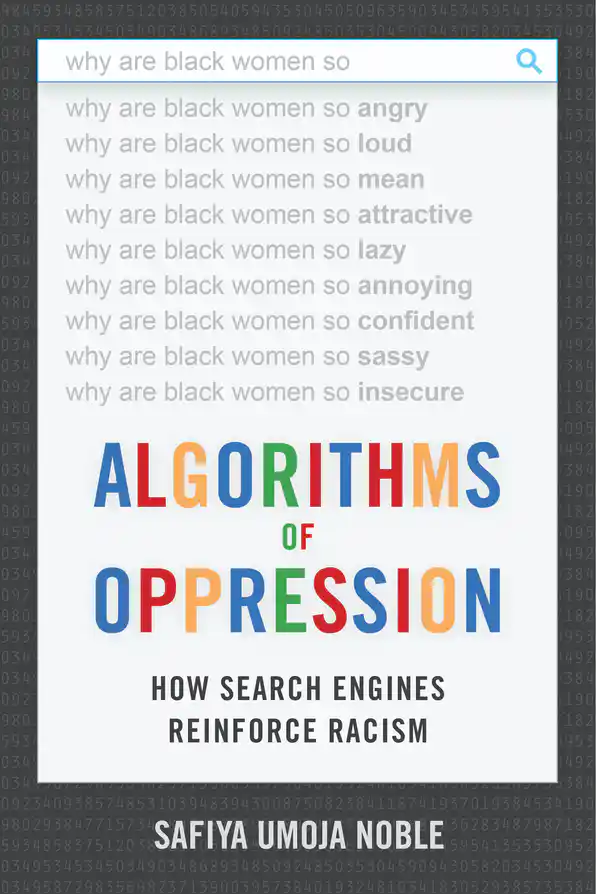Book Review: Algorithms of Oppression - Safiya Noble

Run a Google search for “black girls”—what will you find? “Big Booty” and other sexually explicit terms are likely to come up as top search terms. But, if you type in “white girls,” the results are radically different. The suggested porn sites and un-moderated discussions about “why black women are so sassy” or “why black women are so angry” presents a disturbing portrait of black womanhood in modern society.
One of the essential texts of the algorithmic age. It neatly sets out how Google (and it is almost exclusively Google in this book) has corrupted the way we view the world. The writing is a bit "academic" for my liking - but it is a compelling read and shows the reader how Google's putrefying lens distorts everything.
There are a few things which I found a bit annoying. It is mostly focussed on the African-American experience. Other races and cultures don't get much of a look-in. So many books about the Internet's problems are really about the American Internet.
The book correctly identifies that Google is too big to effectively regulate and should be broken up. That's something I agree with. Too much of Google's efforts go into promoting other Google products, rather than what's best for the user. But that doesn't solve the problem of monetising misinformation.
There's a distressing example of an American terrorist who searched "black on white crime" and got radicalised because one of the prominent search results was racist misinformation. A search today reveals a very different set of results:

But this leads me to my major criticism of the book - who should decide what information should be surfaced? The original Google returned "neutral" results - in that the algorithm didn't take any human intervention and thus returned results in line with current biases. The current Google results are, of course, tweaked to ensure Google remains profitable - and that means removing offensive or hateful content.
Should Google be more editorial in its search results? Should it be a radical librarian and redirect people to things need rather than want? Again, I like the sound of that - but the book gives no indication of how that would work, nor the dangers it would bring.
A brilliant, if sometimes frustrating, book.
| Verdict |
|---|
- Read on Amazon Kindle
- Audiobook and ePub from Kobo
- Paper book from Hive
- Listen on Audible
- Author's homepage
- Publisher's details
- Borrow from your local library
- ISBN: 9781479866762
What links here from around this blog?